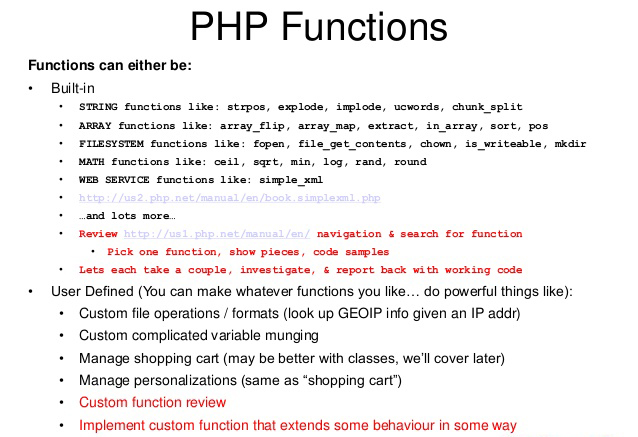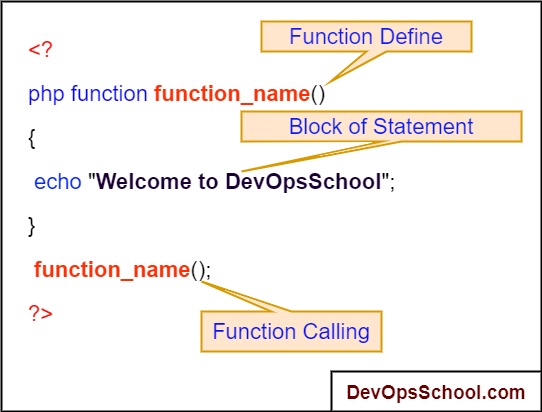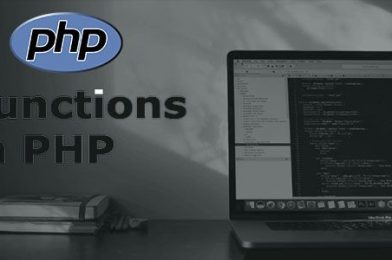What is Functions?

A function is a segment of code in a program that is written to do a certain task. We should compare functions to workers in a real-world workplace to have a better grasp of how they work. Assume the management delegated the duty of determining the annual budget to one of his employees. So, what will be the outcome of this procedure? The employee would ask his supervisor for data, perform estimations, calculate the budget, and report the results to his superior. Functions work in a similar fashion. They accept data as an argument, process it using a set of statements or operations, and then return the output.
How many Types of Functions in PHP?

There are Two Types of Functions :-
User Defined Functions:-These capabilities are used by developers and programmers when they need to execute their own logic. This functions are specified with the keyword function, and when a function call is made, a sequence of statements will be written within the function to execute it. Simply type functionname() in the address bar, and the function will be run.
Built-in functions:- These routines offer us with already-built-in library functionality. The PHP installation kit includes several capabilities, making the language more efficient and helpful. To use the function’s attributes, all we have to do is call it when we want the desired outcome. PHP makes use of date, numeric, string, and other built-in functions.
- String Functions: These PHP features include built-in support for working with strings. Some of the string methods in PHP include strpos(), strncmp(), strrev(), and strlen() ,
- Date Function: The format is a human-readable UNIX date and time format, and these functions are PHP standard components.
- Numeric Functions: These functions have their own preset logic for numeric operations that PHP provides. As a result, it will either return a Boolean or a numeric value. Among them are is number(), number format(), round(), and other numeric procedures.
Why we should Use Functions in PHP?
Reusability:- This programming language has a feature that reduces the amount of lines of code that must be written many times. This would save time and effort for the developer or coder. We can put a piece of code in a feature and call it whenever and wherever it’s needed if it has to be used in many locations. This may be done by calling the functions from other programmes or from inside the same package.
Easier Error Detection:- Because the code is written as functions rather than single blocks, any problems may be immediately and readily recognized and rectified.
Easily Maintained:- Because functions are used throughout the program, we may quickly modify any function or line of code in the function, and the change will be reflected. As a result, it is simple to maintain everywhere.
How to create functions in PHP?

A function is to find a collection of statements in a programmer repeatedly. When a function in a program is invoked, it is simply implemented. There are a few things to keep in mind while creating a user-identified feature.
- Any word ending in an opened and closed parenthesis is a feature.
- The function keyword is commonly used to start a name of the function.
- Type your name followed by a parenthesis to launch a command.
- The initial letter in a function word cannot be a number. It might start with a letter or an emphasis.
- The name of a feature is important.
Example:-
